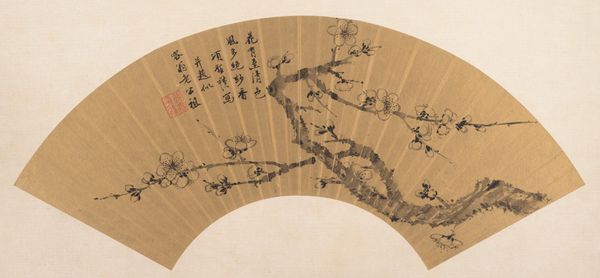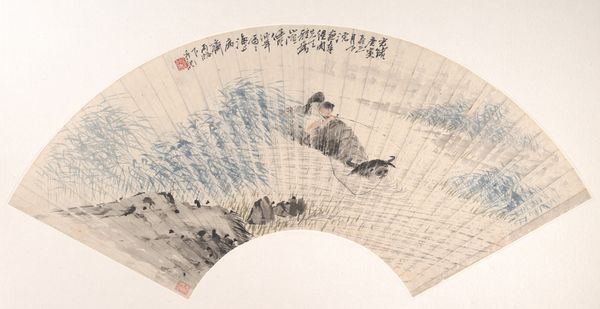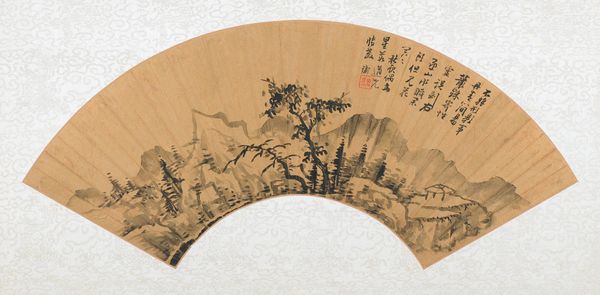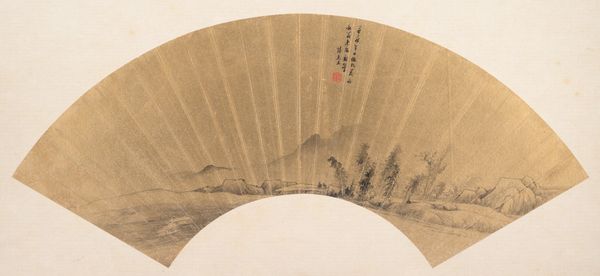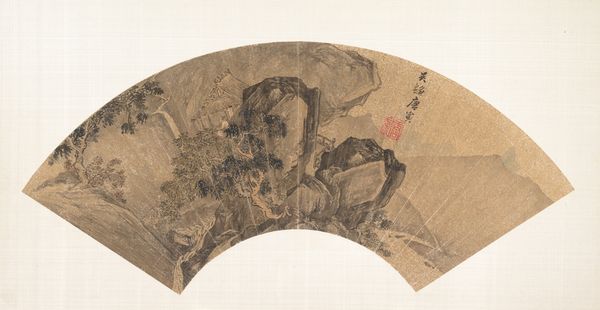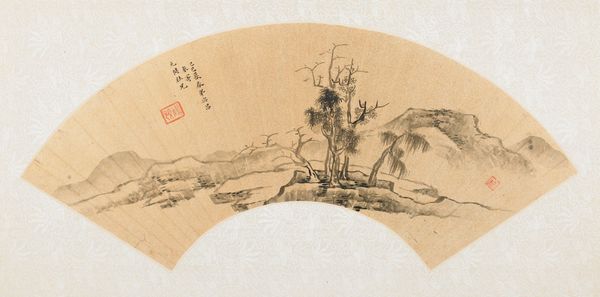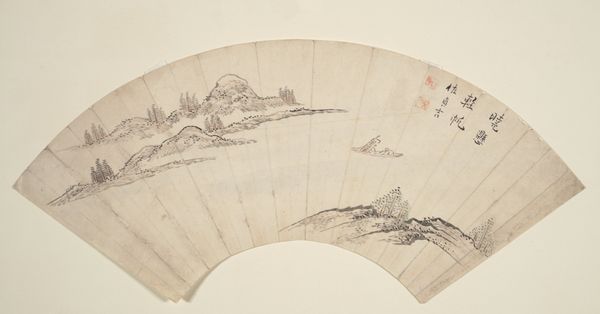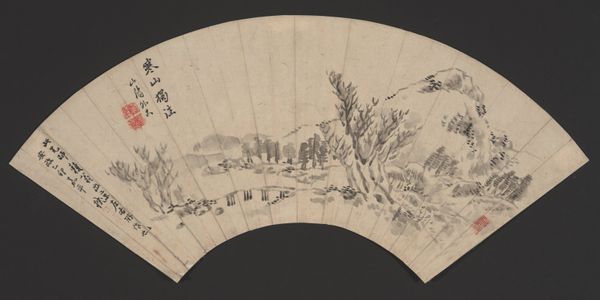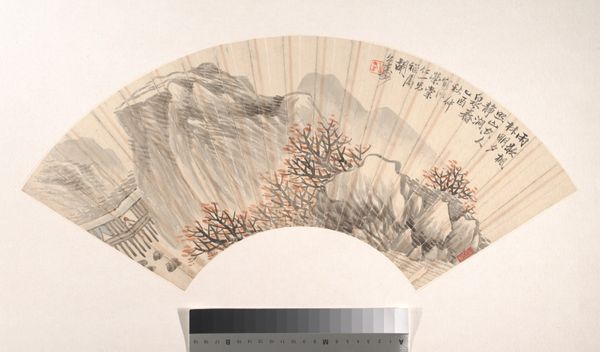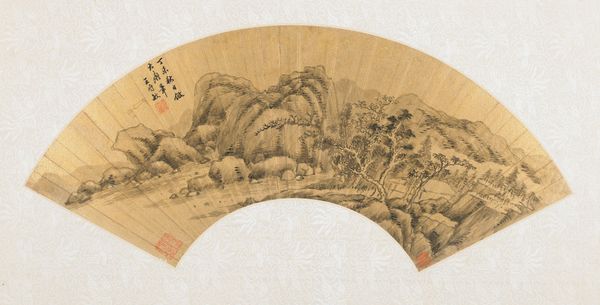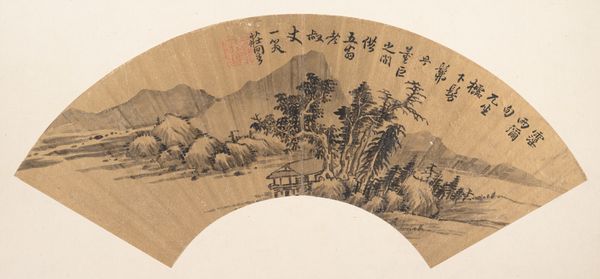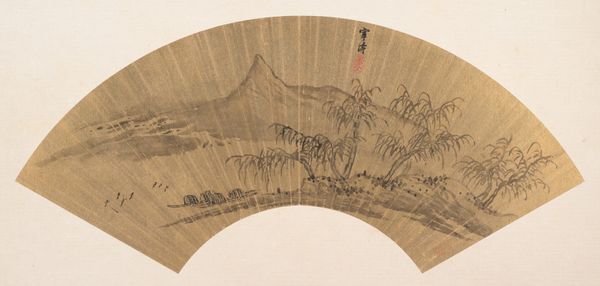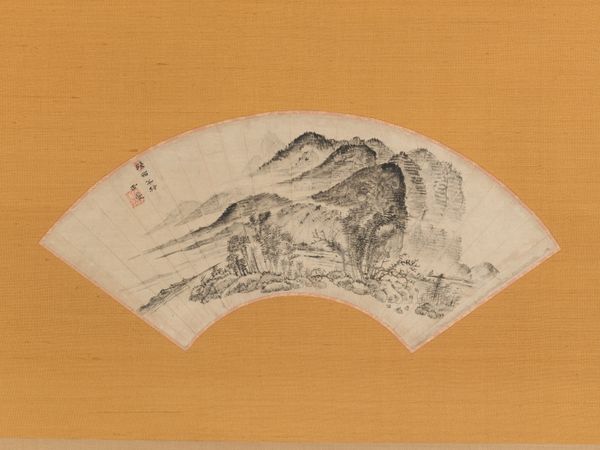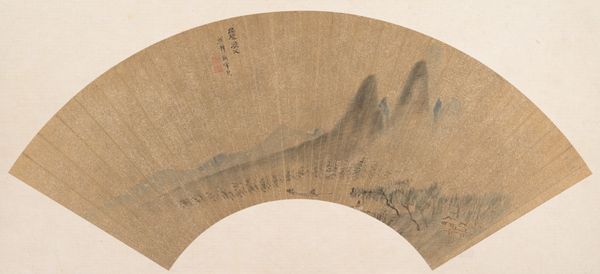
painting, paper, watercolor, ink
#
painting
#
asian-art
#
landscape
#
figuration
#
paper
#
watercolor
#
ink
#
line
#
watercolor
Dimensions: 7 1/4 x 20 5/16 in. (18.4 x 51.6 cm)
Copyright: Public Domain
Curator: This is Wu Guxiang’s "Landscape," created in 1894. It's a watercolor and ink work on paper, currently held at the Metropolitan Museum of Art. Editor: It has a quiet, reflective mood, wouldn’t you say? The brushstrokes feel so delicate. The muted palette contributes to a feeling of contemplative serenity. Curator: Absolutely. Looking at it through the lens of artistic production, the use of watercolor and ink on paper, specifically shaped like a fan, indicates the artist’s deep understanding and command of traditional Chinese painting techniques. It speaks to a highly refined and skilled labor process. Editor: The composition—the sharp, angled peaks set against soft, curving lines of the water—it's almost a study in contrasts. What does this tension evoke? Curator: Consider the material constraints of the time. The accessibility of these materials—ink, watercolor, paper—reflects broader socio-economic realities influencing artistic production. Furthermore, the fan format suggests this piece might have been designed for practical use or as a social gift within a specific cultural context. Editor: Interesting, and what of its symbolic dimension? Are we meant to reflect on the relationship between humankind and nature? The figure in the boat seems quite small against that grand landscape. Curator: Yes, indeed, especially within a feudal society structure. The fan form, its use, the potential commodification—these aspects highlight how art served and reflected the social, material, and labor practices of its time. It challenges any pure, aesthetic reading, emphasizing production and use. Editor: So, instead of finding purely formal relationships within color and structure, your emphasis shifts to where the materials came from, who had access, and who produced it? Curator: Precisely. And how it circulated through society as an object. Editor: Very well, an enriching viewpoint for me as it complements the emotional and formal relationships within its composition. Curator: I'm glad to broaden your perspective. It’s fascinating how the confluence of material conditions shapes artistic output.
Comments
No comments
Be the first to comment and join the conversation on the ultimate creative platform.
